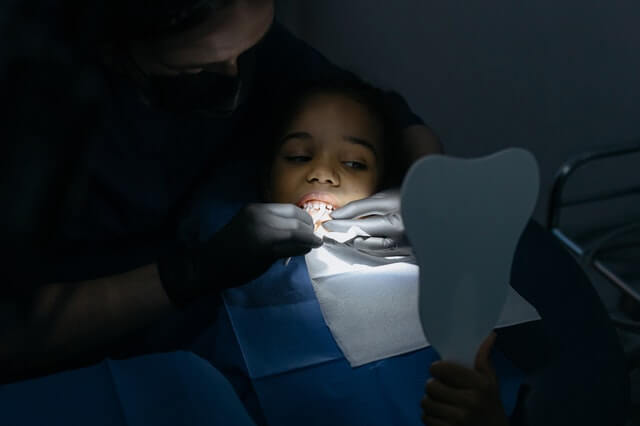7 Good Habits for Oral Care

Oral care is the practice we take to maintain a healthy mouth. It is a vital part of our overall health care. Having a dentist for oral care Wall Township is one of the ways to make sure that you stay on top of your dental health.
Common oral problems such as tooth decay, mouth sores, and periodontal disease are lessened or avoided when we take good care of our teeth and gums.
Here are seven good habits that we can do to maintain good oral care.
1. Brush your teeth regularly
The most basic thing that you can do to prevent cavities is to brush your teeth at least 2x a day. It is also best to use a toothbrush with soft bristles since hard bristles can damage your gums. Consider also using toothbrushes with triple-action bristles. In addition, changing your toothbrush every three months helps ensure that it is always in good condition in cleaning your teeth. Make sure that you brush your teeth the right way using small, circular motions. Do not be too aggressive with your strokes. Lastly, don’t forget to include your tongue for a fresher breath.
2. Avoid using tobacco products
The use of tobacco is linked to many oral health problems like oral cancer and gum disease. Smokers are twice more at risk of developing periodontitis compared to non-smokers because their immune system is weakened. If you smoke, you would want to consider quitting soon. Your teeth and gums will thank you for avoiding smoking and other forms of tobacco products.
The effects of tobacco on our teeth
Tobacco can cause many oral health problems. Some problems include bad breath, discolored teeth, the buildup of plaque and tartar, and gingivitis. In severe cases, it can cause oral cancer and periodontal disease leading to tooth loss. Tobacco affects the normal functioning of our gum tissue cells making your gums recede.
3. Limit your sugar intake
According to the World Health Organization, the most common non-communicable disease in the world is dental caries. It’s also known as tooth decay. One of the primary reasons for decaying teeth is too much consumption of sugar in our diet. If you have a sweet tooth then you have a higher risk of developing cavities.
We mainly get sugar from sweet desserts, confectionery, sweetened beverages, chocolates, and many others. But be careful as even food that is advertised as ‘healthy foods’ can contain too much sugar for our diet. Sugar can come in many forms and it is advertised using many similar terms: corn syrup, maltose, honey, fructose, and fruit juice concentrate to name a few. It is totally okay to eat sweets, but just like any activity, we should do so in moderation.
The effects of sugar on our teeth
Sugar is not the lone culprit of developing cavities, but it’s more of its interaction with the bacteria in our mouths. Both good and bad bacteria are present in our mouths. And, the bad bacteria feed on the sugars that we eat. When the bacteria feed on them, they also immediately create acids. Too much of these acids can destroy the natural shiny layer of your teeth, called the enamel. If you repeatedly consume too much sugar, it will lead to developing cavities and even tooth loss.
4. Floss once a day
Brushing your teeth regularly is great, but flossing at least once a day is even better. Flossing helps remove tiny food particles stuck in between your teeth after eating. It also helps clean the hard-to-reach areas of your mouth. Flossing daily will help prevent the buildup of tartar and plaque, which causes damage to your gum tissue and causes gingivitis.
5. Use mouthwash
Many people think that mouthwash is not necessary, but mouthwash actually helps a lot with keeping our mouths clean. Aside from making our breath smell fresh, mouthwash helps reduce the acid in our mouths, aids in the remineralization of the teeth, and cleans areas in the mouth that are hard to reach through brushing.
You can ask your dentist for recommended products or specific mouthwashes you can use depending on your dental needs.
6. Consider using oral care products with fluoride
Fluoride is a mineral that can be naturally sourced from certain foods such as spinach, potatoes, and raisins. It can also be obtained from dietary supplements. We can also get fluoride from water and other beverages like black tea. In the U.S., some states make use of fluoridated water as a common source of fluoride.
Your dentist can recommend that you have a professional fluoride treatment if you have dental conditions such as gum disease, a history of cavities, or dry mouth conditions. You can ask your dentist if you are a candidate for a professional fluoride treatment.
The benefits of fluoride
Here are some benefits that fluoride can do to our teeth and gums:
- Re-mineralizes our teeth surfaces and teeth enamel that may have been eroded due to harmful bacteria
- Lessens the growth of bad bacteria in our mouths
- Prevents dental caries caused by harmful bacteria in our mouths
- Helps you save money from future complex dental work
The recommended amount of fluoride depends on your age and life stage. The recommended amount for adult men and women is between 3mg to 4mg. Fluoride has many benefits to the oral health of both children and adults, so is it always wise to use products that contain fluoride.
Risks of too much fluoride intake
Aside from knowing the benefits, it is equally important to know about the risks of taking too much fluoride. One risk of having too much fluoride is developing a condition called dental fluorosis. Dental fluorosis occurs when there are white lines, stains, or small dents that appear on the developing teeth of infants and children.
Another condition you can develop is a bone disease called skeletal fluorosis. In this rare condition, your joints feel painful and stiff and your muscles weaken. In some cases, too much fluoride can also cause hyperthyroidism.
7. Visit your dentist for oral care Wall Township
Visiting your dentist for oral care at least once a year is a great way to keep your teeth and gums in check. A professional dental cleaning can help prevent the growth of bacteria that cause bad breath. A regular checkup also helps your dentist detect problems early, preventing you from developing serious oral health problems and undergoing complex dental work.
If you would like to schedule an appointment with our dentist for oral care, contact Sage Dental and Spa office in Wall Township, NJ.
Oral Care for Children

Teeth cavities are a hundred percent preventable. Thus, placing importance on oral care for children helps them develop good habits early. You can start booking an appointment for your children as early as their first birthday. Then, keep a regular visit to the dentist at least once every six months.
You can encourage your children to brush their teeth twice a day using a pea-sized amount of toothpaste with fluoride. Teach your children how to properly brush and floss their teeth. Younger children should be supervised as well to ensure that they spit out the toothpaste instead of swallowing it. When they reach six years old, you can teach them how to properly use mouthwash.
If your child has braces, he or she is more at risk of developing cavities. So, ensure to schedule regular visits with your dentist. You can also ask your dentist if your child needs sealants or fillings. Another way is to learn about the amount of fluoride in your water. You can do this by reaching out to your water company for the details. Lastly, you should monitor your child’s sugar intake to help lessen their risk of cavities.
Dentist for Oral Care Wall Township
At Sage Dental and Spa, we help you stay on top of your oral care. If you would like to book an appointment at our oral care clinic, you may contact our office here.

